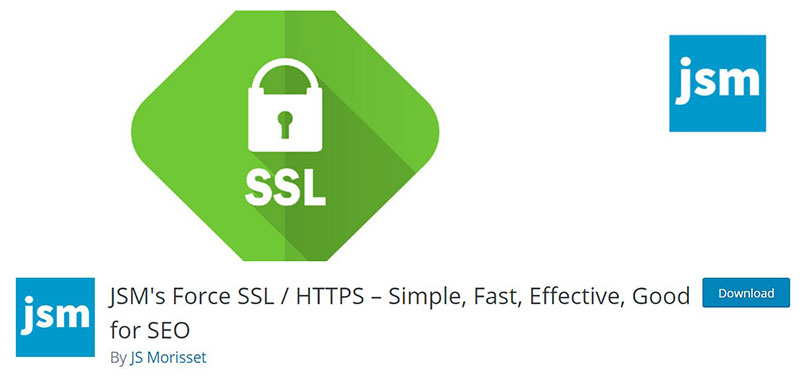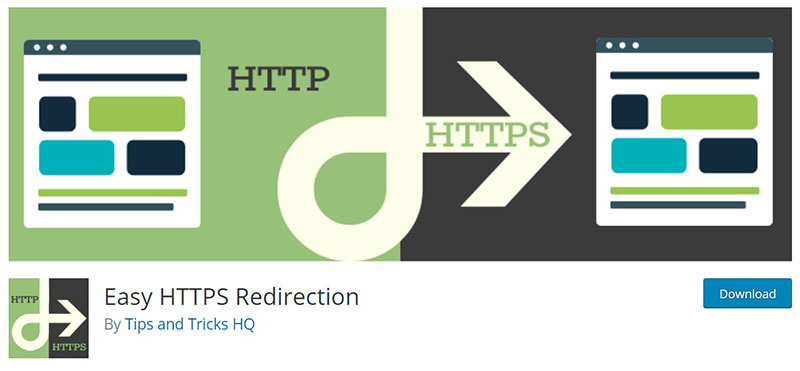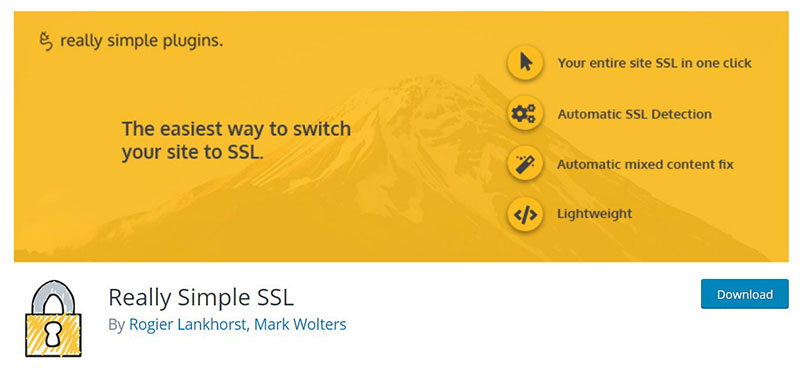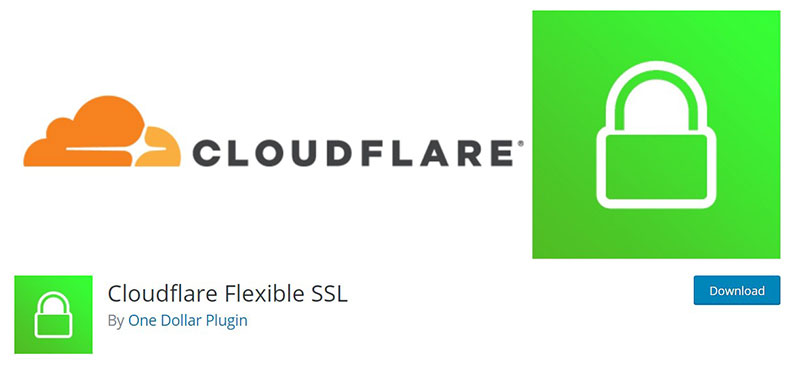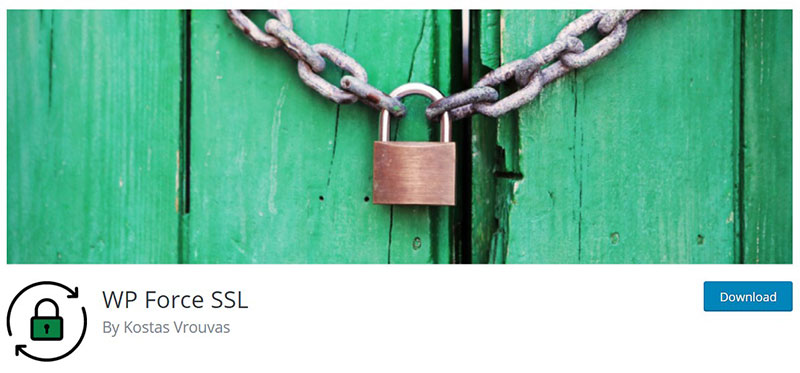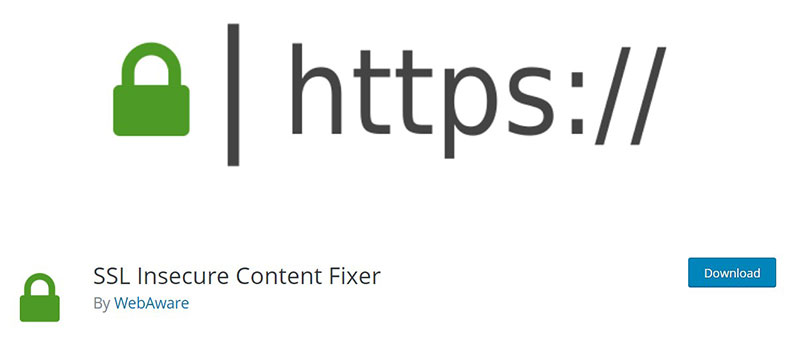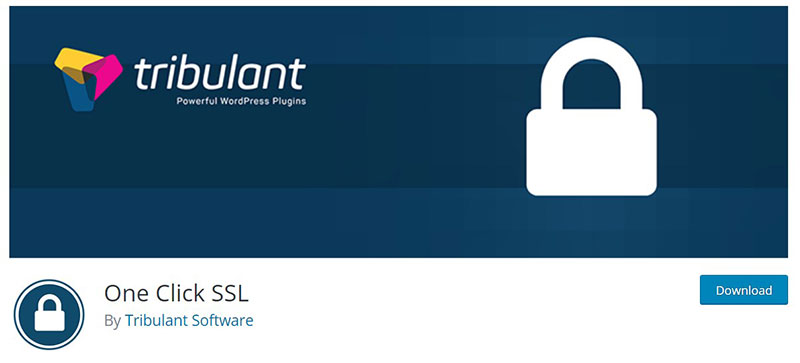A WordPress SSL plugin is nowadays more than any time necessary to have on your website, even if you have just a personal website.
The advancement of web technology comes with many benefits, but also one major downside: more ways for malicious actors to disrupt our lives. Security on the Web is a big topic today and people are rightly concerned about having their information or identity stolen.
We use the Internet in all sorts of sensitive situations — we carelessly inset our credit card information on various websites, share our bank account numbers, upload our personal pictures, and more.
Because our lives are so entwined with the digital world, users are now hyperaware of the security on the websites they visit, and the first thing they look out for is whether the website is SSL secured or not. This is recognized by the HTTPS URL instead of a simple HTTP one.
This article created by our team at wpDataTables, will explain the basics of SSL and show you how you can easily convert the HTTP version of your WordPress site into the SSL-secured version using a plugin.
SSL —What Is It and How Does It Work?

SSL is short for Secure Sockets Layer and it represents the standard technology used to create an encrypted connection between the server and the user who is trying to access a site. By encrypting this data, there is no risk of having it stolen as it passes through the Internet.
Websites that have an additional “S” in the classic URL structure (HTTP) own an SSL certificate. Whenever they notice this “S” people can rest assured that the information is encrypted.
The basic steps to initiate an SSL connection include:
- The browser connects to a server, requesting its identity
- The server responds by sending over its SSL certificate
- The browser checks the certificate with a certificate authority and verifies it
- The server begins an SSL-encrypted session with the browser
Although it is still referred to as an “SSL” certificate, SSL is actually an outdated technology, superseded by the newer protocol, TLS. Nowadays, it is common to simply call it SSL/TLS, even though the connection is most likely encrypted by TLS instead of SSL.
Why Would You Need It?
If it’s not obvious enough, we’ll expand this topic to convince you that you absolutely need to use an SSL certificate for your website.
Even if your website doesn’t deal with highly sensitive information like credit card details, users feel much safer when interacting with your site when they know it is encrypted.
Modern browsers recognize the existence of an SSL certificate and signal it with a green lock on the left side of the URL bar. Sites that are not secured may make the browser generate a pop-up warning that lets users know about the potential risk.
Besides the user aspect, Google knows which websites are secure and which aren’t, ranking HTTPS sites higher than non-HTTPS sites, so there are SEO benefits as well.
8 Great WordPress SSL Plugins
If you built your website using WordPress, the shortest, easiest way to convert it from HTTP to HTTPS is by using a WordPress SSL plugin. Please note that you will still have to buy an SSL certificate from your hosting provider, though you can also get one for free from Let’s Encrypt.
We’ve selected some of the best plugins and listed them below:
HTTPS redirection
This plugin is used to redirect users from a regular URL to the secured version of the URL (i.e. https://yourwebsite). Install an SSL certificate on your website as you would normally, and then activate the HTTPS Redirection plugin.
Even though the HTTP version still exists, users will be forced to visit the HTTPS version instead, thus avoiding all the downsides listed earlier in this article.
Really Simple SSL
This plugin is probably the most popular one out there, especially because of how easy it is to use. Really Simple SSL lets you enable the SSL certificate for your site with just one click. Activating this plugin will move your entire website to an HTTPS URL.
The requests you get will be redirected to the new URL that is SSL configured, just as in the case of the HTTPS Redirection plugin.
Cloudflare Flexible SSL
If you use Cloudflare, this might work nicely. They offer a WordPress SSL plugin that is a bit more interesting because it lets you add a flexible SSL certificate to your site, which makes your HTTP site appear to be HTTPS when connecting the user to the intermediary Cloudflare server.
Compared to other plugins of this type, Cloudflare Flexible SSL prevents infinite redirect loops, which can cause your website to lose visitors. Loading websites with this plugin reduces this risk tremendously.
WP Force SSL
Not fond of hassling with the technical bits of SSL? Then you should use a WordPress SSL plugin that requires little to no knowledge in the field at all. WP Force SSL is so easy to use that even a child would be able to add the extra layer of security to a website.
You just have to install and activate it and all of your HTTP requests will be redirected to HTTPS.
SSL Insecure Content Fixer
If you already implemented your SSL certificate but you seem to encounter a lot of bugs and errors, this plugin will fix them. As the name suggests, this is a content fixer plugin, which is meant to clean up your website if you messed up the settings somehow.
It also improves your website’s speed by optimizing images and videos. SSL Insecure Content Fixer is a tool that shouldn’t be missing from your inventory.
One Click SSL
Once you’ve obtained your SSL certificate, users who normally accessed your site using the old URL might encounter some issues when trying to access it again. That’s why you need to use a plugin that moves the requests directly to the HTTPS version.
This is a beginner-friendly WordPress SSL plugin that does exactly that, while also turning non-HTTPS resources into HTTPS ones.
JSM Force SSL
If you want to use a plugin that doesn’t involve much setup, JSM Force SSL is for you. This WordPress SSL plugin lets you rewrite HTTP URL requests to HTTPS ones without having to do anything.
You just need to install the plugin and the job is done. Deactivating the plugin will stop the dynamic redirects. That’s all there is to it.
SSL Zen
For those who want a free SSL certificate, SSL Zen will make the job easier by using Let’s Encrypt certificates. It will automatically review your current certificate and generate a new one for your website when it expires. It’s easy to work with, but it is compatible with cPanel only.
FAQ on WordPress SSL plugins
Why do I need an SSL plugin for my WordPress site?
Well, look, when it comes to online safety, Secure Socket Layer (or SSL for short) is your big shield. Think of it like a protective barrier for your site.
By using WordPress SSL plugins, you’re ensuring that all the data between your server and your visitors stays encrypted and safe. Nobody wants their personal stuff out in the wild, right? It’s a step towards beefing up your WordPress security and winning trust from your visitors.
Can’t I just get an SSL certificate from my host?
Absolutely, you can! Many hosting providers offer SSL certificates as a part of their package. But remember, while the certificate is great, an SSL plugin for WordPress will help in managing things like HTTPS redirection and resolving mixed content warnings.
Plus, if you’ve got content from various sources, it might show up as non-secure without a handy plugin to streamline things.
What’s this “Let’s Encrypt” I hear about?
Oh, you’ve got an ear for buzzwords! Let’s Encrypt is a game-changer. It’s a free Certificate Authority (yep, CA) that provides free SSL certificates.
Most WordPress SSL plugins support it. It’s like getting the keys to a free security vault. The idea is to make the web a safer space, and they’re doing an ace job.
Why is my padlock not green even after installing SSL?
Ah, the elusive green padlock. So, you’ve taken the plunge, got SSL, but no green love, huh? This usually points to mixed content warning issues. It means while your main site is secure, some elements (maybe an image or script) aren’t. You’ll need to ensure all content is loaded over HTTPS. Some WordPress SSL plugins auto-fix these issues.
How often do I need to renew my SSL certificate?
Typically, an SSL certificate lasts for a year. However, some providers might offer them for longer periods. With Let’s Encrypt, you’d be looking at a 90-day cycle.
But don’t sweat it, some WordPress SSL plugins will handle SSL renewals for you. It’s like having a security buddy reminding you, “Hey, time for a quick update!”
Is there a difference between SSL and TLS?
Good question! In the simplest terms, SSL is the older version, and TLS is the newer, shinier model. Both are protocols for end-to-end encryption.
Over time, vulnerabilities popped up in SSL, and voila, TLS came into the picture. For most non-tech folks, the difference is negligible, but it’s always good to be in the know.
Can I use one SSL certificate for multiple domains?
You sure can! There are multi-domain SSL and wildcard SSL certificates designed for this purpose. A multi-domain one covers different domain names, while wildcard is for subdomains under one main domain. It’s like having a security blanket that stretches across your entire online empire.
Do I need to know coding to set up SSL on WordPress?
Not really. That’s the beauty of WordPress SSL plugins. While having a bit of technical knowledge might help if things go sideways, most plugins make the process straightforward.
Think of it like plugging in a toaster – easy-peasy. But, for the love of WordPress encryption, always backup before making significant changes!
What if I accidentally force SSL on an HTTP-only site?
Oops! Forcing SSL on a site that’s not yet ready can break things. You might lock yourself out or have display issues. But no panic!
You can reverse it. You’ll probably need to access your site via FTP and tweak the .htaccess redirect or disable the plugin causing the chaos. Remember, always tread carefully with force SSL actions.
Are free SSL certificates as good as paid ones?
Here’s the tea: free SSL certificates, like those from Let’s Encrypt, do a fab job for basic encryption.
They ensure your WordPress HTTPS connection is secure. But, paid ones might offer additional features, warranties, or trust indicators. If you’re running a big e-commerce site or something, investing in a premium SSL might be worth considering. It’s all about weighing the pros and cons.
Ending thoughts on these WordPress SSL plugin options
There is a myriad of SSL plugins you can choose from, so your best option is to try more than one and see which works best for your situation. Always keep in mind that you should install plugins from trustworthy sources, with a considerable amount of reviews.
Otherwise, your website’s performance can be altered, and your search engine ranking may be affected, not to mention having to deal with potential security issues. Make your choice wisely!
If you enjoyed reading this article on WordPress SSL plugin, you should check out this one about WordPress salts.
We also wrote about a few related subjects like malware scanner plugins and WordPress security.
